January 2022 – COA Patient Advocacy Network News Bulletin
Advocacy Chats – Insightful Conversations on Policy Issues & Cancer Research
The Crystal Ball for Cancer Policy in 2022: A CPAN Advocacy Chat
The 2022 midterm elections have policymakers across the political spectrum focused on passing big wish list items and reform packages to win over voters. As members of Congress look to address pharmacy benefit manager misbehavior and hospital consolidation, and pharmaceutical companies argue for increased transparency from the 340B drug pricing program, how might cancer policy be impacted? On January 12th, 2022, at 12 p.m. EST, join COA’s Executive Director, Ted Okon, and Director of Patient Advocacy and Education, Rose Gerber, to learn more about what this election year could mean for patients and providers everywhere. Click here to register.
ICYMI: Caring for the Caregivers: Supporting the Families and Friends of Patients
A cancer diagnosis affects so much more than the patient. It sets into motion a network of family and friends who serve as a vital support system. Caregivers to people with cancer may help with care delivery, transportation, groceries, housecleaning, finances, and more. Taking on these responsibilities—in addition to their own work or education—can add stress and worry to a caregiver’s busy schedule. Often, caregivers don’t know where to turn for relief. COA’s Rose Gerber and Caregiver Action Network’s CEO John Schall share tips on how to care for those who care for people with cancer. Stream it on @OncologyCOA’s YouTube channel today.
Understanding Advocacy in a Community Oncology Setting
Why It Matters
- More than 1.7 million people in the United States are diagnosed with cancer each year, and deaths from the disease have been steadily declining due to earlier detection, diagnosis, and treatment.
- There are more than 7,000 community oncologists practicing in this country, with more than 25,000 affiliated health care providers, including oncology nurses, nurse practitioners, physician assistants, oncology pharmacists, and oncology social workers.
- The majority of patients with cancer are cared for in a community oncology setting, and more than 60 percent of patients who are in clinical trials now come from a community oncology setting, a rapidly growing percentage.
What is Advocacy?
- Advocacy — a show of public support or opposition for a policy or cause — is an important part of the political process. Policymakers are obligated to seek out or allow input from stakeholders on all sides of issues before decisions are made.
- Advocacy is a routine and expected part of decision making at every level of government, including at the federal, state, and local levels. It brings ordinary citizens into the policymaking process so that different viewpoints can be heard before government officials act.
- You don’t have to be a professional lobbyist to be an effective advocate. In fact, anyone with an opinion and has a willingness to express their views in a public setting can become one. You are an advocate!
Learn more about community oncology, the challenges facing practices, and how you can get involved by visiting CPAN’s Education & Resources library.
Cancer News You Can Use
Blood Test Could Help Detect Cancer in People with Nonspecific Symptoms
The Guardian 01/04
Scientists developed a blood test that could help detect cancer in people with nonspecific symptoms, such as unexplained weight loss or fatigue. If validated, the test could identify cancer patients earlier, when they are more likely to respond to treatment, and help flag who could benefit from early access to drugs designed to tackle metastatic cancer. The test can also tell if the disease has spread.
Many Cancer Patients Face Mounting Bills Despite Having Insurance
HealthDay 01/04
Many insured cancer patients still experience serious money problems linked to their illness, new research affirms. For example, nearly three out of four insured patients with colon cancer have major financial hardship in the year after their diagnosis, which affects their social functioning and quality of life.
Integrative Services Such as Nutrition Counseling Boost Cancer Patient Survival, Study Finds
HealthLeaders 01/04
Oncologists rely mainly on conventional medicine such as chemotherapy to treat their patients, but integrative oncology services, which combine complementary and lifestyle therapies such as meditation with conventional medicine, benefit many breast cancer patients, a recent research article says.
Surgery for Early-Stage Cervical Cancer is Changing
Everyday Health 12/30
Surgery is the most common treatment for cervical cancer when it’s found early, but a patient’s surgical options seem to have changed in recent years. Results from a new study reveal surgeons are performing fewer minimally invasive procedures to treat early-stage cervical cancer.
Community Oncology 101 – Getting Patients Engaged – CPAN
In communities like Augusta, GA, the COA Patient Advocacy Network creates a strong, connected network of cancer survivors who support affordable, quality cancer care that’s close to home. See the power of CPAN advocacy in action here.
Resources for Chapters
As the new Omicron variant of COVID-19 circulates around the world, how can people with cancer and those that care for them stay safe? Visit our COVID-19 Resources page to learn more about how to prevent infection, how to navigate insurance, tips for managing mental health, and more.
Recent News & Updates
Administration of cannabidiol (CBD) was safe and associated with what researchers described as intriguing results regarding scan-related anxiety among women with advanced breast cancer, experts explained in an exclusive interview with CURE®.
Dana Romano's mom, Marilyn, headed home from the Dozoretz Hospice House of Hampton Roads in Virginia Beach on Monday evening after spending a few days in respite care while her family was out of town.
An opportunistic infection is one that a person with a healthy immune system is unlikely to get.
Lately, I have been forgetting that I don't have hair. I involuntarily lift my fingers to my scalp to brush away loose strands, but instead my fingers touch a domed, smooth surface.
